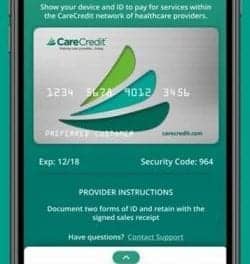
When I was on my way to work a few weeks ago, my ears perked up when I heard NPR covering a story about sleep apnea. Usually, the stories I hear or read on mainstream media are about sleep apnea awareness, but this time I was surprised to hear coverage of home testing and insurance trends taking place in Massachusetts as they relate to reimbursement for diagnostic testing. As I listened, the coverage began to cast the sleep medicine profession in a poor light. Overall, the NPR story was overly critical, in my opinion, but, nonetheless, not to be discarded. There were a couple of take-home messages; namely, the sleep industry needs to clear all sleep labs of having any hint of a reputation as an “apnea mill,” and sleep labs should be prepared to use home testing effectively.
NPR’s article, “The Sleep Apnea Business Is Booming, and Insurers Aren’t Happy,” painted an unfair picture of the sleep profession by making laboratories look like they are overly concerned with business objectives.
Sources quoted within the article suggest that sleep professionals are quick to prescribe CPAP without recommending other strategies like losing weight and sleeping on your side. Such criticism lacks a sound clinical basis, and the American Academy of Sleep Medicine (AASM) set out to set the record straight. “Based on years of research data, it is clear that continuous positive airway pressure (CPAP) therapy is the first-line treatment for OSA. CPAP helps restore normal breathing and oxygen levels during sleep,” according to a statement released in reaction to the article. The Academy also noted that sleep specialists do recommend other strategies when appropriate.
Second, sources within the article suggest that patients are undergoing unnecessary diagnostic studies. A fraud and abuse expert said some patients are not undergoing basic examinations first and are being prescribed costly tests they don’t need. The AASM also pointed out the flaw in that source’s comment: “Sleep apnea is a condition that cannot be accurately diagnosed by the patient’s history or physical examination, and an overnight sleep test is required to provide the physician the information needed to make a correct diagnosis.”
Keeping with the theme of sleep centers as profit centers, the article also pointed out one sleep testing company that had an image on its Web site showing a physician with a wad of money in his lab coat pocket. Also noted was that the AASM was holding a “business meeting” at golf resort. You get the idea.
The mischaracterization of the sleep profession is not reason to write off the article. Given that the mainstream media is drawing attention to the business practices of sleep centers, the industry must do its best to promote best practices. In part, this can be done through accreditation.
Sleep medicine professionals would also be wise to prepare for more widespread use of home sleep testing. NPR quotes officials from WellPoint who recently instituted a policy preferring home tests over in-lab polysomnography in order to curb costs. Michael Backus, senior vice president of American Imaging Management, a subsidiary of WellPoint, said 70% of tests should be done with portable monitors while 30% should be in-lab. Expansion of such policies is expected.
With the mainstream media bringing attention to these issues, you can believe that insurers and the public will increasingly expect the sleep medicine profession to curb costs while maintaining the highest standards. Many labs are already doing this. If you’re not, establishing a game plan to meet those expectations will help you be better prepared to serve informed patients and cost-cutting insurers.
—Franklin A. Holman
[email protected]



